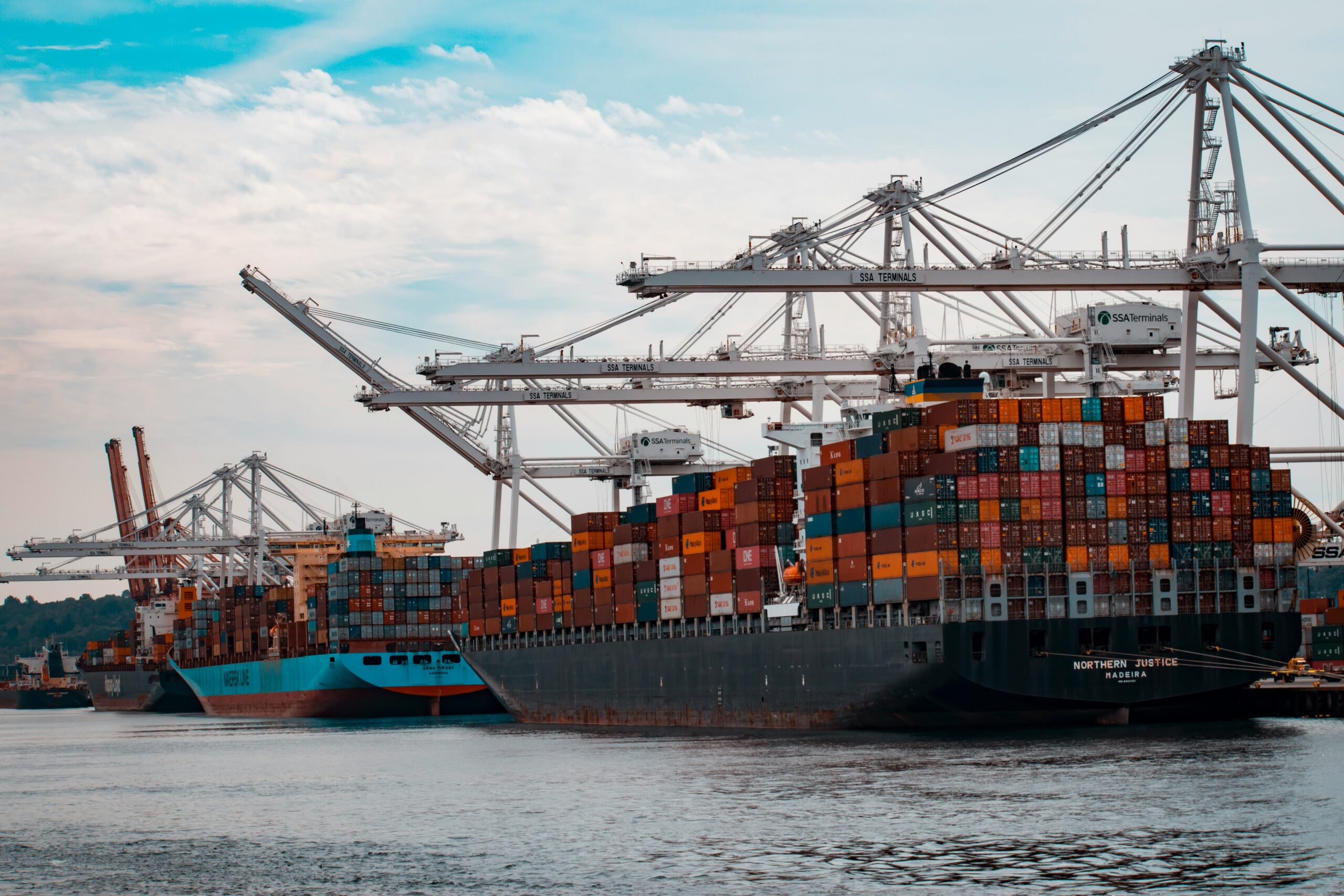Photo by Andy Li
Under intense pressure from Donald Trump’s government, countries have postponed plans to force shipowners to start paying for the damage they do to the climate. The International Maritime Organisation vote on 17th October marks a significant setback for international maritime climate regulation ahead of next month’s COP30 climate summit in Brazil.
More than 100 countries had gathered in London for what should have been the rubber-stamping of a decision made in April, which would have seen shipping become the world’s first industry to adopt internationally mandated targets to reduce emissions. US officials were accused of “bullying” and “intimidation” as nations met at IMO headquarters.
After four days of intense wrangling, 57 countries voted in favour of delay, with 49 against and 21 abstentions. Saudi Arabia tabled the motion to adjourn. In April, the measure had passed with support from 63 member states. The US threatened countries and individual officials with tariffs, penalties, visa restrictions, port levies and sanctions if they supported the pricing mechanism. It is reported that some petrostates held out the offer of sweeteners to countries that voted against the plan.
US President Donald Trump posted on Truth Social: “The United States will NOT stand for this Global Green New Scam Tax on Shipping. We will not tolerate increased prices on American Consumers.” US Secretary of State Marco Rubio declared the outcome a “huge win” for Trump.
The Net Zero Framework would have set binding targets for ships over 5,000 gross tonnes to cut fuel carbon intensity from 2028. Shipowners would pay $380 per tonne of CO2-equivalent emissions, plus $100 per tonne for excess emissions. Ships using cleaner fuels would earn tradeable credits. Experts estimate the levy could raise $10 billion annually, though most revenues would remain within the shipping industry for vessel upgrades rather than supporting climate-vulnerable countries.
Shipping represents approximately 3% of global greenhouse gas emissions but is forecast to rise to 10% by mid-century. The framework aims to cut net emissions by 20% by 2030 and eliminate them by 2050.
The UK and most EU nations voted to continue talks, whilst Russia, Saudi Arabia and the US voted to adjourn. China, which supported the deal in April, agreed to delay. A delegate told the BBC that island nations including Bahamas and Antigua and Barbuda, which rely on US trade, had been “leaned on heavily” by the Trump administration.
Hon. Ralph Regenvanu, Vanuatu’s climate minister, said: “This is unacceptable given the urgency we face in light of accelerating climate change.”
IMO Secretary-General Arsenio Dominguez chided delegates: “It is the time to really look back at how we have approached this meeting. My plea to you is not to repeat the way we have approached this meeting for future discussions.”
The International Chamber of Shipping’s Thomas Kazakos said: “We are disappointed that member states have not been able to agree a way forward at this meeting. Industry needs clarity to be able to make the investments needed to decarbonise the maritime sector.”
Dr Simon Bullock of the Tyndall Centre for Climate Change Research said: “Yet again, powerful fossil fuel states are successfully blocking global efforts to cooperate on climate change. This is not the result the industry wanted, nor one the world’s people can afford.”
Even if agreed next year, the measure will take years to implement, potentially delaying action until near the end of this decade. The extraordinary scenes at the IMO, where discussions are normally staid and technical, bodes ill for further climate finance talks at COP30 in Brazil next month.
